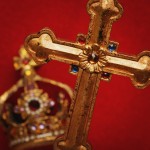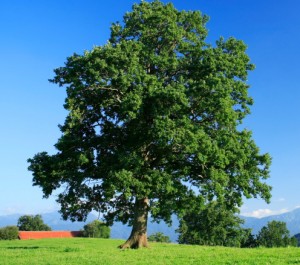 Jesus said Christians are to “seek first the kingdom.” (Matt. 6:33). To seek the Kingdom first, we should have a proper understanding of what the Kingdom is and what it is not. With that in mind, here are 4 common misconceptions about the kingdom of God:
Jesus said Christians are to “seek first the kingdom.” (Matt. 6:33). To seek the Kingdom first, we should have a proper understanding of what the Kingdom is and what it is not. With that in mind, here are 4 common misconceptions about the kingdom of God:
1. That the kingdom of God is the same thing as heaven. As I addressed in another post, while the kingdom of God includes heaven, it is broader than that, also encompassing people, places and things on earth under the delegated authority of Jesus.
2. That the kingdom of God is the same thing as the Church. As I also addressed in a previous post, while the kingdom of God includes the Church, i.e. Christians, it is broader than that. Jesus made this clear in explaining the Parable of the Wheat and Tares, when He said that at the end the wicked (tares) would be gathered “out of His kingdom.” (Matt. 13:41). This doesn’t mean non-Christians will go to heaven; only the righteous (those covered by the blood of King Jesus) inherit the Kingdom.
3. That the kingdom of God is purely a future phenomenon. Jesus told his followers the Kingdom was in their midst (Luke 17:21), and if He cast out demons the Kingdom had come upon them (Luke 11:20)– He did, therefore, it had. And, Daniel prophesied that the kingdom of God would be set up during the days of the Roman Empire (Daniel 2:36-45). Jesus planted the flag of the kingdom of God on the earth and the Kingdom has been for 2,000 years.
4. That the kingdom of God will be unsuccessful on earth until Jesus comes back to jump-start it. Once established on earth (see misconception #3), the kingdom of God will “never be destroyed”, “will crush and put an end to all these kingdoms”, and “it will endure forever.” (Dan. 2:44). Jesus describes the growth of the Kingdom as steady and progressive, not dormant or latent. (Matt. 13:33).
Have you embraced any of these misconceptions? GS
 In a previous post I wrote that Jesus was using a metaphor in referring to His rule as a kingdom. Metaphors are meant to communicate packages of information by explaining something not known in terms of something known.
In a previous post I wrote that Jesus was using a metaphor in referring to His rule as a kingdom. Metaphors are meant to communicate packages of information by explaining something not known in terms of something known.


